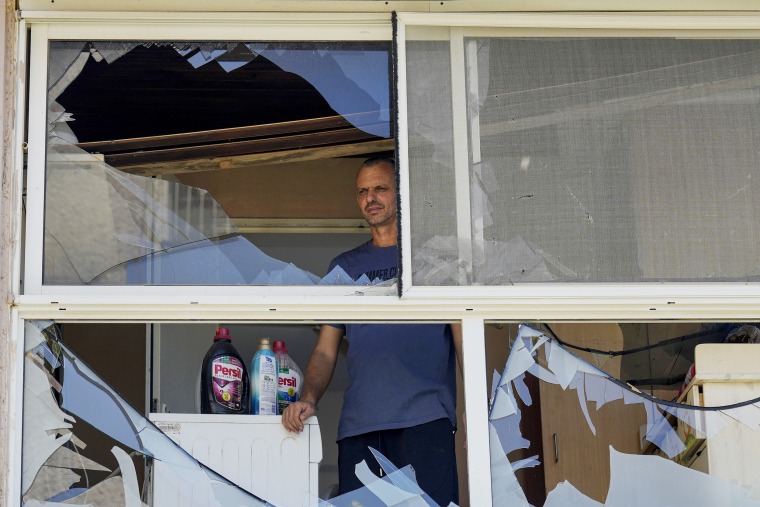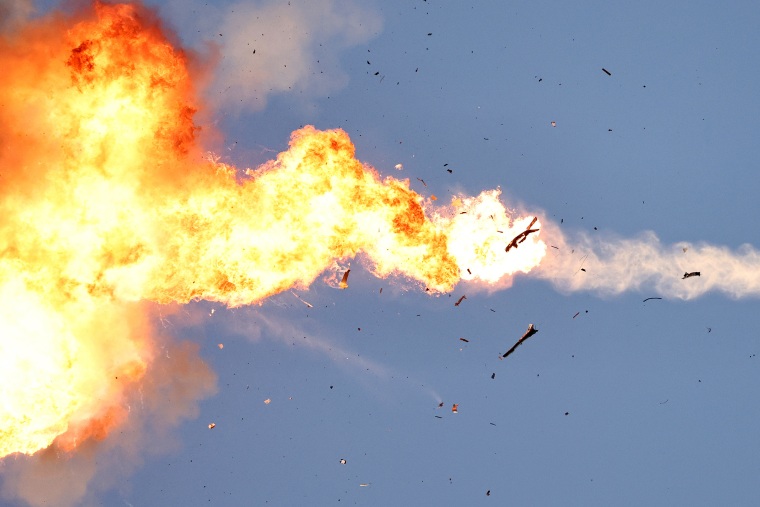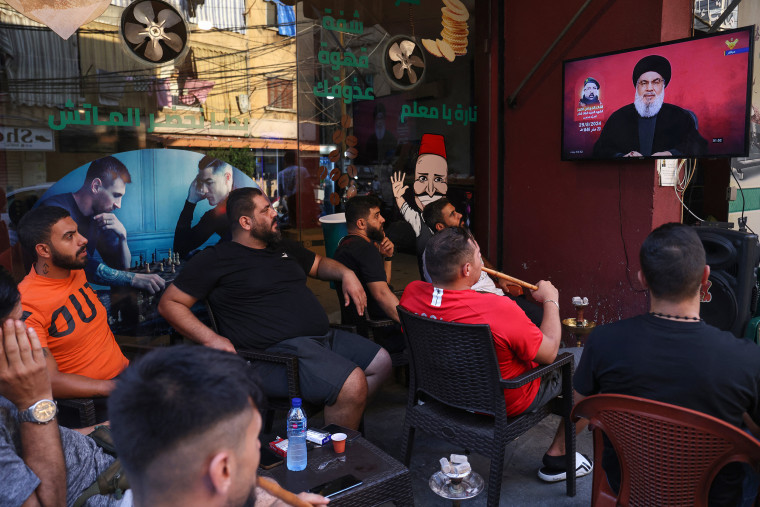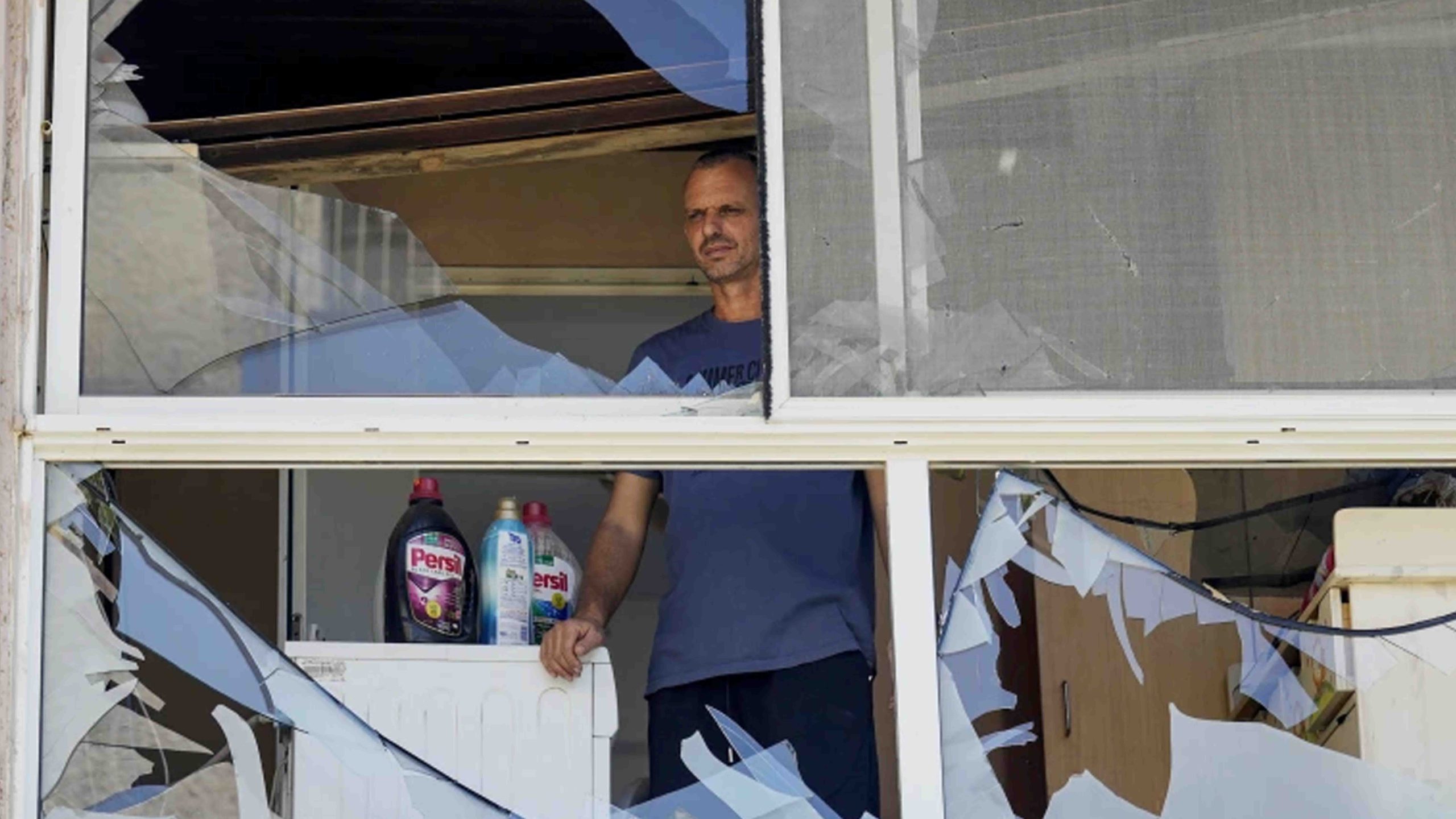A series of cross-border attacks between Israel and Hezbollah over the weekend sparked fears of a wider regional conflict, but an “all-out war” appears to have been averted, for now.
The escalation that long felt inevitable arrived in a blaze of cross-border attacks over the weekend, but a Middle East on edge woke Monday having escaped all-out war — for now at least.
The intense exchange between Israel and Hezbollah followed weeks of threats that stoked fears of a wider regional conflict.
And on Sunday, Israel launched what it said were pre-emptive strikes on southern Lebanon after saying it had detected preparations for a “large-scale” attack by the Iran-backed militant group.
Soon after, Hezbollah aimed hundreds of rockets and drones at Israel and claimed to have hit a military intelligence base near Tel Aviv — revenge, it said, for the assassination of a senior commander last month in Beirut.
It was the heaviest fire the two sides have traded in 10 months of simmering conflict.

But both Israel and Hezbollah quickly signaled they were happy to leave things there, for now. Tehran, reiterating its own vow of “definitive” retaliation against Israel, touted the Hezbollah attacks as a success. And Washington, a staunch ally of Israel, voiced continued hope for efforts to secure a cease-fire in Gaza.
“The exchange of fire alongside the Israeli-Lebanese border … and the post-strike messages from both Israel and Hezbollah seemingly indicate neither is interested in an all-out war,” Avi Melamed, a former Israeli intelligence official and negotiator, said in an analysis shared with NBC News on Sunday.
He said the round of violence could bring some “calm to the region” and “bring an end to the anxious period of waiting for rounds of retaliatory strikes that could very well have led to an all-out war.”
The escalation came amid ongoing talks in Egypt’s capital, Cairo, to negotiate a deal between Israel and Hamas that would end the Israeli military campaign in the Gaza Strip and secure the release of hostages held by Hamas in the Palestinian enclave.
The high-level talks in Cairo ended Sunday without any final agreement, though they’re expected to continue at lower levels over the coming days in an effort to close remaining gaps in the negotiations, a U.S. official told NBC News. The talks “have been constructive and were conducted in a spirit on all sides to reach a final and implementable agreement,” the official said.

In an address to Lebanese civilians Sunday, Hezbollah leader Hassan Nasrallah said the group had delayed its response to commander
Fuad Shukr’s assassination in order to allow negotiations to continue, and had no intention of targeting civilian infrastructure.
Now, Nasrallah said, “Lebanon can rest.” But he warned that if the results of Sunday’s operation were “not sufficient, we reserve the right to respond.”
Hezbollah, which has the largest missile arsenal of any nonstate actor in the world according to weapons watchdogs, has previously said it would halt its attacks on Israel if a cease-fire deal is struck.
Israel Defense Forces spokesman Nadav Shoshani said Hezbollah’s attack might have appeared more subdued because of what Israel has described as its pre-emptive strike carried out by dozens of fighter jets.
“Part of this attack looking not as big was our self-defense attack in the morning before their attack,” Shoshani told NBC News.
Hezbollah said it ultimately fired around 320 Katyusha rockets toward 11 Israeli bases and military sites.
The Lebanese Health Ministry said at least three people were killed amid the Israeli strikes, with Reuters reporting that a fighter from the Hezbollah-allied Shia group Amal had been killed.

During a news briefing Sunday, IDF spokesman Daniel Hagari said the Israeli military was aware of at least six militants killed in the strikes. He said that one IDF soldier died of injuries after the patrol boat he was in was hit by an Iron Dome interceptor or interception fragments.
Israeli Prime Minister Benjamin Netanyahu warned at the beginning of a Cabinet meeting in Tel Aviv that Sunday’s hostilities were “not the end of the story,” however.
Iran, which has vowed its own retaliation against Israel for the assassinations of Shukr and Hamas political leader Ismail Haniyeh, has yet to act.
The country’s new foreign minister, Abbas Aragchi, said late Sunday that Iran’s response “is definitive and will be measured and calculated.” And early Monday, his spokesman praised the Hezbollah attack as highlighting that Israel has lost its “deterrence power.”
“Despite the comprehensive support of states like the United States, Israel could not predict the time and place of a limited and managed response by the resistance,” Foreign Ministry spokesman Nasser Kanaani wrote on X.
